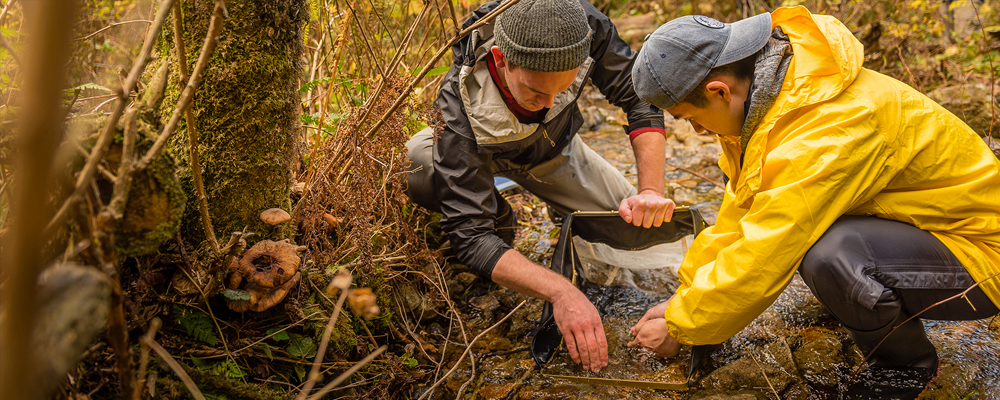Sustainability
Bachelor of Sustainability (BSust)

Why study Sustainability at UBC’s Okanagan campus?
The Bachelor of Sustainability (BSust) is interdisciplinary to the core because no one academic discipline can address issues like climate change and biodiversity loss in their entirety. At the same time, it asks students to learn within select concentrations that develop the knowledge, skills, and attitudes that enable them to take action and solve problems at local to global scales.
By connecting university learning with hands-on and community-based learning, the program equips undergraduate students with the breadth and rigour to find solutions to contemporary sustainability issues such as climate change, land and water use, energy transition, and social and economic inequality.
Students graduating with a sustainability background from UBC will have a firm grounding in, and be able to demonstrate, the following four key attributes: Sustainability Knowledge, Awareness and Integration, Acting for Positive Change, and Holistic Systems.
Concentrations
Students take a set of core integrative courses specific to sustainability along with a set of advanced courses.
ENVIRONMENTAL ANALYTICS
Engage sustainability challenges through evidence-based data analysis to understand, model, simulate, explain, and extrapolate the behaviour of complex environmental systems.
ENVIRONMENTAL CONSERVATION AND MANAGEMENT
Gain a comprehensive understanding in environmental and natural resources management, land use and ecosystem services assessment, resource economics, and environmental impact assessment.
ENVIRONMENTAL HUMANITIES
Learn about the ethical, historical and cultural roots of environmental crisis, and find out how to optimize the impact of sustainability research.
GREEN CHEMISTRY
Examine chemical synthesis to improve efficiency and reduce hazardous effects to living things and the environment.